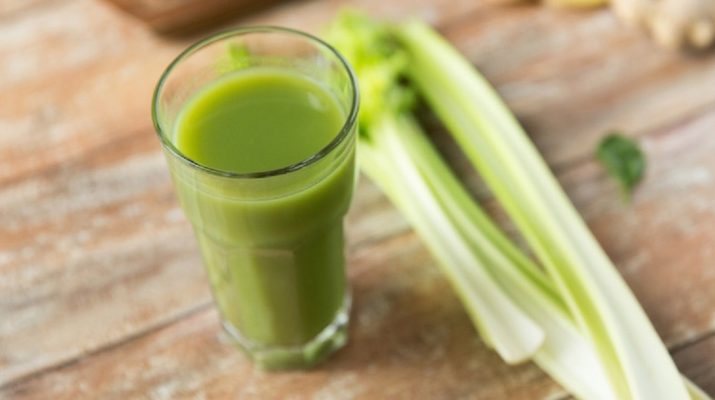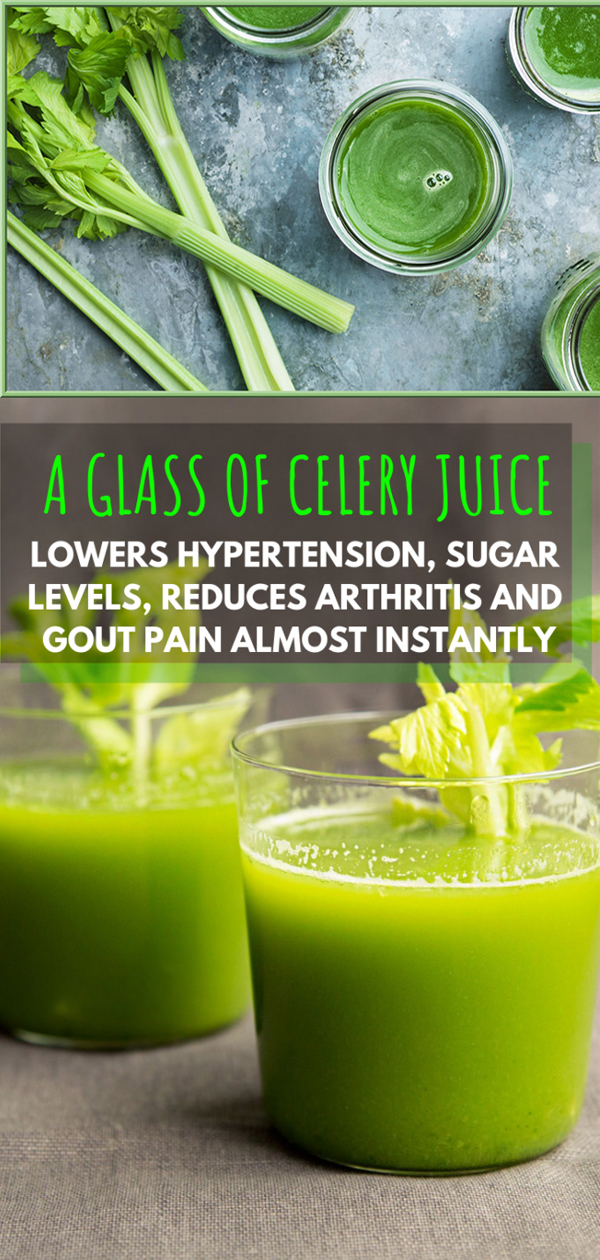Being aromatic and crispy, celery is one of the most popular veggies on the planet. It is a member of the Umbelliferae family, just like parsley and fennel. It can grow to the height of up to 16 inches, and its white variety is grown shaded from direct sunlight, as it contains less chlorophyll that its greener counterparts.
The ancient Ayurveda has used it and its seeds as natural remedies for the flu, colds, arthritis, poor digestion, and liver and spleen disorders. Yet, you will reap most of its benefits if you consume it.
Celery has a salty taste and its ribs are crunchy and tasty, so they are often added to salads, stir-fries, and soups.
Its leaves are abundant in vitamin A, while the stems are high in vitamins B1, B2, B6 and C, magnesium, iron, folate, potassium, calcium, phosphorus, sodium and numerous essential amino acids.
According to Dr.Mercola:
“Celery is a rich source of flavonoids like zeaxanthin, lutein, and beta-carotene, which studies have shown lowers inflammation as well as the risk of heart disease, enhances the immune system, and inhibits the growth of abnormal cancer-causing cells. Antioxidants in celery include natural phenolic dihydrostilbenoids, such as lunularin, and furanocoumarins like bergapten and psoralen. The flavonols quercetin and kaempferol also are present.
Celery leaves (which contain the most vitamin C, calcium, and potassium) and seeds also contain a number of little-heard-of volatile oils, such as terpenes (which consists mostly of limonene), and the sesquiterpenes β-selinene and humulene.
The compound 3-n-butylphthalide, which gives celery its fresh, earthy essence, may play a part in both reducing cholesterol and blood pressure levels by relaxing blood vessel muscles. Coumarins help thin the blood, and linoleic acid is an omega-6 fatty acid. What all these and other compounds do for the body is pretty impressive.”
When juiced, celery releases high amounts of fiber, and it is a rich source of natural organic sodium (salt) that is essential for the body.
Here are some of the health benefits of this healthy vegetable:
Blood Pressure: The organic sodium in celery lowers blood pressure, while a compound it contains, phthalides, relaxes the muscle around arteries, dilating the vessels and improving the blood flow.
Inflammation: The polyacetylene in celery is a powerful anti-inflammatory, that soothes gout, rheumatoid arthritis, osteoarthritis, asthma, and bronchitis.
Constipation: Celery has a natural laxative effect that fights constipation.
Kidney function: Celery improves the function of the kidneys and prevents the formation of kidney stones.
Weight loss: Celery juice will help you prevent cravings for sweets and junk foods, and will accelerate the weight loss process.
Urinary stones: This amazing juice has a potent diuretic effect that helps the breaking and removal of urinary and gall bladder stones.
Cholesterol: Celery juice has been found to lower total cholesterol and LDL (bad) cholesterol.
Acidity: The numerous minerals in the celery juice effectively neutralize acidity, and regulate the blood pH of the body.
Diabetes: The juice of this vegetable is rich in antioxidants known as flavones which lower blood sugar and prevent sugar spikes.
Nervous system: Celery juice contains numerous organic alkaline minerals that soothe the nervous system and treat insomnia.
Diuretic: Celery juice is rich in potassium and sodium which regulate body fluid and stimulate the production of urine production.
Cooling: A glass of celery juice a few times daily will normalize your body temperature during hot weather.
Athletes: Celery juice replaces the lost electrolytes after a workout, and rehydrates the body with minerals.
When buying celery, choose the greener one, with firm ribs. Keep it in a sealed container or a plastic bag in the fridge. In case it has wilted, sprinkle it with a little water and leave it in the refrigerator for a few hours, to regain its crispness. Furthermore, avoid celery in case you have low blood pressure, or if you develop skin issues after eating it.


